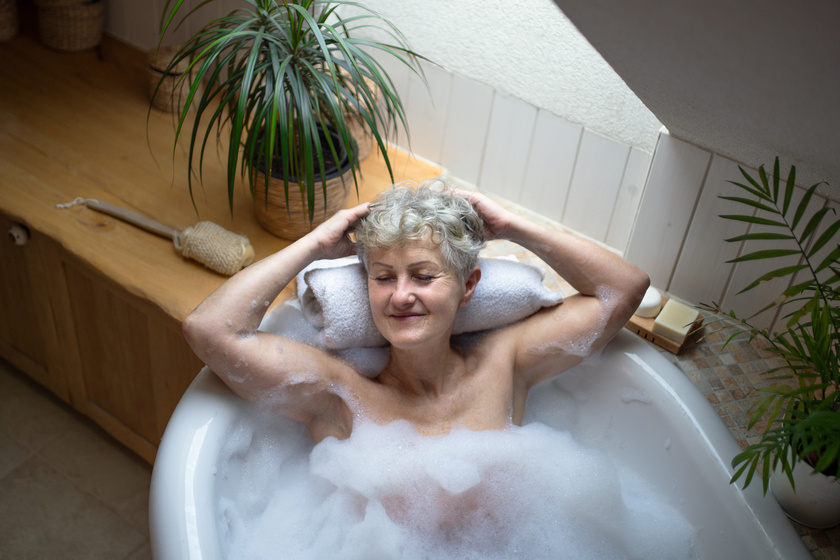When caring for older adults, one common question is, “How often should elderly shower?” The answer is that elderly individuals typically need to shower two times a week on average. This frequency strikes a balance between maintaining good hygiene and avoiding the potential risks associated with over-showering, such as dry skin or discomfort due to limited mobility. In this blog, we’ll explain about the ideal senior bathing and showering frequency, when it’s time for a bath, and effective techniques to ensure a safe and comfortable experience.
Common Reasons Older Adults Resist Bathing
Many elderly individuals may resist bathing for a variety of reasons, often rooted in physical, emotional, or cognitive challenges. Physical discomfort, such as joint pain or fear of falling, can make the process daunting, leading to avoidance.
Cognitive issues, like dementia, may cause confusion or anxiety around bathing, making it seem unnecessary or even frightening. Additionally, a loss of independence can make individuals feel vulnerable during such personal tasks, contributing to their reluctance.
How Often Should Elderly Shower?
Most senior Americans wonder “Should you shower everyday?” But is it good to shower everyday actually? The answer is: No, it is not a basic requirement to maintain good health. At a minimum, taking a shower twice or three times a week can already help most older adults prevent skin infections and breakdown. Making use of warm washcloths to wipe groin, armpits, feet, genitals, and skin folds will also help minimize body odor in between full baths.
However, for older adults living with dementia, caregivers say it is actually necessary to maintain a daily shower routine. They will much less likely to resist once showering has become a daily practice.
Factors Affecting Shower Frequency
While the general recommendation is two to three times a week, the exact frequency can vary depending on several factors:
- Skin Condition: If an elderly person has particularly dry or sensitive skin, less frequent showers may be advisable to prevent further irritation.
- Mobility: For those with mobility challenges, daily showers may be difficult or unsafe.
- Incontinence: Those dealing with incontinence may need to bathe more frequently to maintain hygiene and prevent infections.
- Personal Preference: Some elderly individuals may prefer daily showers due to lifelong habits or a strong preference for feeling clean.
Indicators That Bathing is Necessary
Recognizing when an elderly person needs a bath is essential for maintaining their hygiene and health. Common indicators include body odor, visibly soiled skin, or discomfort due to sweat or incontinence. Additionally, if the individual begins to scratch excessively or develops redness and irritation in areas prone to moisture, it’s a clear sign that a bath is needed. Regular monitoring of these signs can help ensure that bathing routines are adjusted to meet the needs of the elderly, promoting comfort and preventing skin-related issues.
Effective Bathing Suggestions
Not Necessary for Running Water
Showering in the tub is the most thorough and easiest way to clean the body. If you do not enjoy taking your shower or have restricted mobility, you can stick to a sponge bath. If necessary, stock up on bathing wipes, waterless cleansers, and no-rinse shampoos to complement the sponge bath routine. These products may leave behind a residue that you can easily wipe off with a damp cloth.
Proper Cleansing Can Prevent Urinary Tract Infections
After using the toilet, cleaning the perineal area thoroughly is crucial to help prevent urinary tract infections. You can incorporate the regular use of moist wipes, especially after bowel movements. Moist wipes are more effective at cleansing as compared to regular toilet paper. You can also consider installing a bidet to the toilet which can help you to maintain proper hygiene of your sensitive parts.
For older adults with mobility restrictions, it can be more convenient for you to put on incontinence briefs. Remember to regularly check your briefs every two hours or so with the help of a caregiver if necessary and change them often so you will not be sitting too long in a dirty brief that can cause itchiness and irritation. During a brief change, make sure to cleanse your sensitive parts thoroughly by using moist towels or wipes. For women, always wipe from front to back to prevent any urinary tract infection.
Maintain Good Hygiene Habits
The key to preventing irritations and infections is for you to maintain good hygiene habits. Showering daily is not the foundation to achieving it as there are various alternatives that are more senior-friendly, especially for older adults with limited mobility. Consider the tips we have shared above to better manage your health and enjoy your retirement life with vibrant activities and events.






